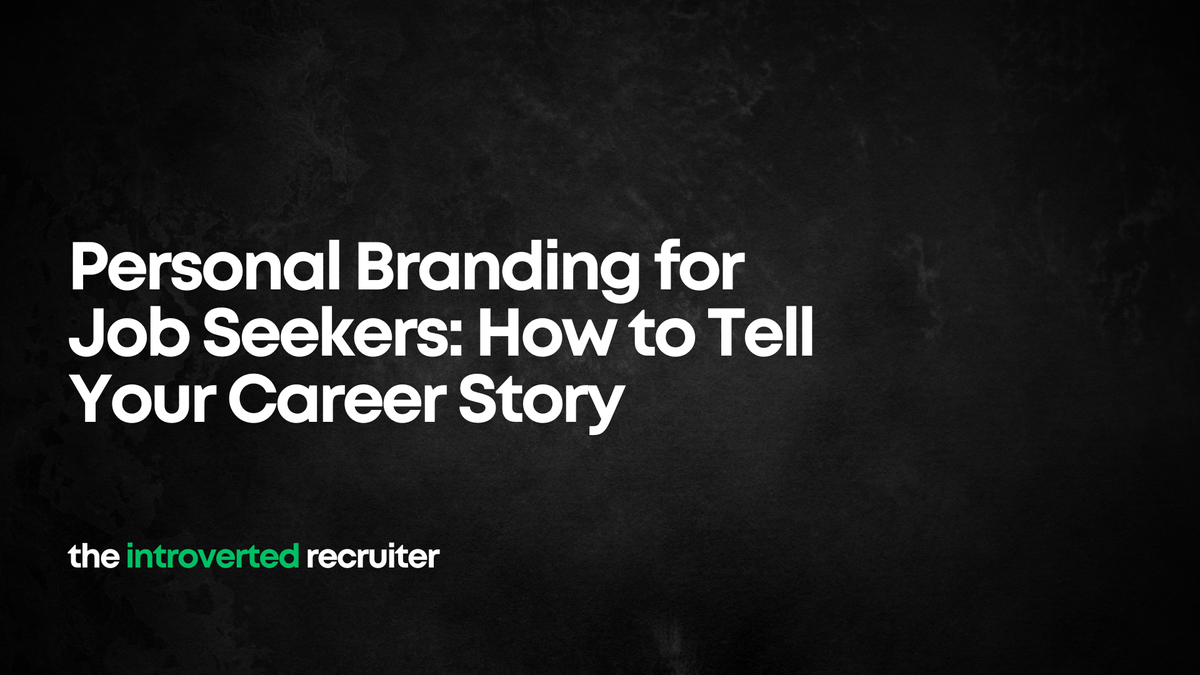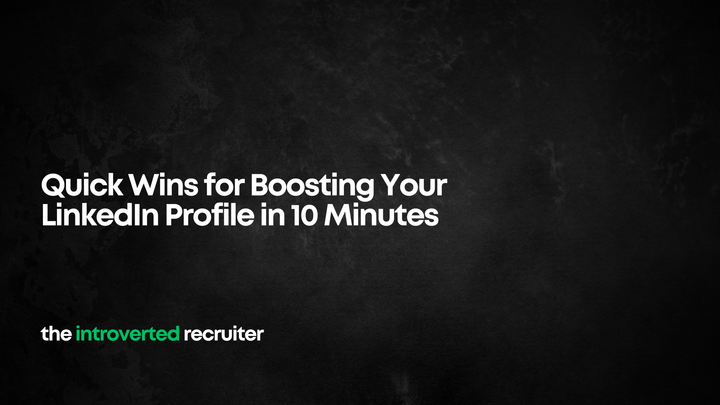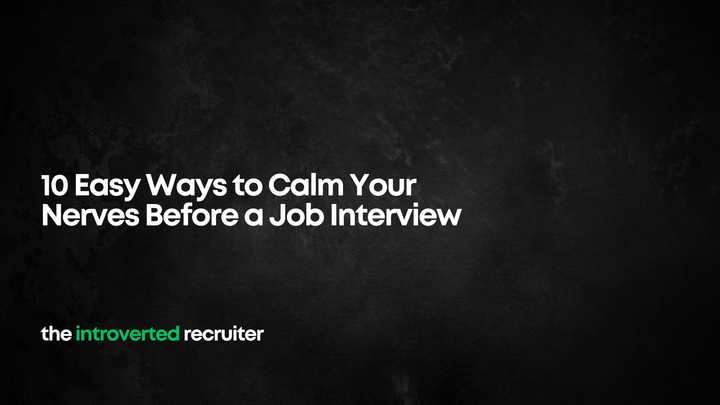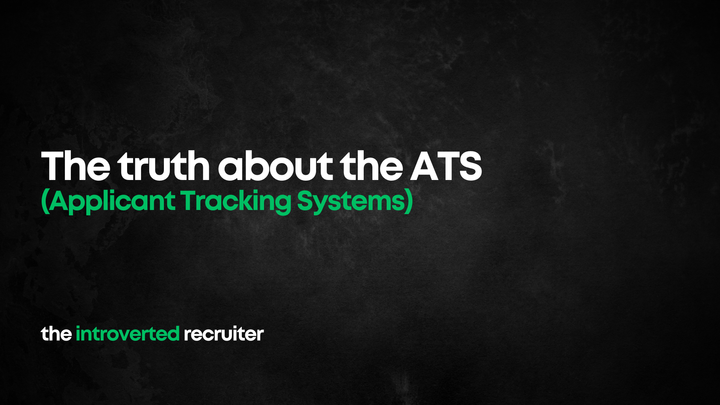Personal Branding for Job Seekers: How to Tell Your Career Story

If you think personal branding is only for Instagram influencers or Silicon Valley entrepreneurs, think again. In today’s hyper-competitive job market, personal branding is for everyone, especially if you’re job hunting. Whether you’re trying to land your first gig or you're a seasoned professional looking for the next big opportunity, how you present yourself can make or break your chances of standing out.
Your personal brand is essentially the story you tell about your career. It’s how people see you, whether they’re looking at your LinkedIn profile, your CV, or even your social media. The key is to make sure that story aligns with what you want next in your career. In this article, we’ll break down how to build a personal brand that helps you stand out, gets you noticed by recruiters, and puts you in the running for the jobs you want.
1. What Is Personal Branding?
Your personal brand is the sum of your experiences, your skills, and how you present yourself to the world. It’s about crafting a cohesive narrative that says, “This is who I am, this is what I do, and this is what makes me different.” And yes, you already have a personal brand, even if you don’t realize it. The question is: are you in control of it?
If you’ve been winging it—just throwing your CV out there and hoping for the best—you’re leaving a lot up to chance. A strong personal brand can help you cut through the noise and give recruiters a clear picture of what you bring to the table.
Action step: Start by auditing your current online presence. Google your name. Check your LinkedIn, Twitter, and any other social media you use for professional purposes. What kind of story is being told about you right now?
2. Define Your Unique Selling Proposition (USP)
One of the biggest mistakes job seekers make is blending in with the crowd. You list your job titles, your responsibilities, and your skills—but so does everyone else. To really stand out, you need to define your Unique Selling Proposition (USP). This is the thing that makes you different from everyone else with a similar background.
Maybe you’re the marketing guru who thrives on data and analytics. Maybe you’re the operations leader who can turn underperforming teams into top-tier performers. Whatever it is, your USP needs to be clear, specific, and memorable. It’s what you want people to think of when they hear your name or see your CV.
The fix: Instead of simply listing skills, think about how those skills have helped you achieve results. For example:
- Instead of “Project Manager,” try “Project Manager | Expert in Delivering Complex Projects on Time and Under Budget.”
- Instead of “Digital Marketer,” try “Digital Marketer | Driving Brand Growth Through Data-Driven Campaigns.”
Action step: Take 10 minutes to brainstorm your USP. What’s your career superpower? How have you helped companies achieve their goals? Write down your top three career accomplishments, then use them to shape your USP.
3. Create a Career Story That Aligns with Your Future
One of the most powerful ways to present yourself is to think of your career as a story—one with a beginning, middle, and future direction. When recruiters look at your profile or CV, they’re not just trying to understand what you’ve done; they want to know how you got here and where you’re going.
Crafting a career story involves looking at your past roles, pulling out key themes or patterns, and showing how each job has contributed to your growth. For example, maybe every job you’ve held has focused on turning struggling departments into top performers. Or maybe your career has been about leading digital transformation projects in traditional industries. Whatever it is, your story should build to your next career move.
The fix: Avoid making your work history sound like a random collection of jobs. Instead, highlight how each role has helped you grow, gain new skills, or achieve results. Then, tie that into what you’re aiming for next.
Action step: Write a one-paragraph career story that ties together your past experiences and points toward your future career goals. Use this as your profile summary on LinkedIn and the opening of your CV.
4. Build a Consistent Online Presence
In today’s job market, your online presence can make or break your personal brand. Employers are likely to Google your name, check out your LinkedIn, and maybe even glance at your other social media profiles before deciding whether to bring you in for an interview. That means you need to ensure your online presence is aligned with your personal brand.
Start with LinkedIn, as this is the go-to platform for recruiters. Your LinkedIn profile should showcase your professional story, highlighting your key achievements, skills, and career goals. But don’t stop there. If you’re active on Twitter, Instagram, or other platforms, make sure your content there aligns with the image you want to project. You don’t need to be a boring corporate robot, but you do need to be mindful of what you post.
The fix: Audit your social media profiles. Make sure your LinkedIn is polished, your Twitter bio reflects your professional interests, and any other public profiles (like Instagram or a personal blog) are aligned with your brand. Clean up anything that could send the wrong message to potential employers.
Action step: Go through your LinkedIn profile today and update your headline, summary, and experience section to reflect your personal brand. Bonus points if you add a recent professional photo.
5. Show, Don’t Tell: Use Case Studies or Testimonials
One of the best ways to strengthen your personal brand is to back up your claims with evidence. It’s one thing to say you’re great at what you do; it’s another to show results. If you’ve led successful projects, managed teams, or helped companies grow, use these achievements to tell your story.
This could be in the form of:
- Case studies: If you work in a field where you can show tangible results, write up a few case studies for your LinkedIn or personal website.
- Testimonials: Ask former colleagues, bosses, or clients for LinkedIn recommendations that highlight your strengths and contributions.
The fix: Don’t rely on vague statements like “hard worker” or “team player.” Instead, provide specific examples that show how you’ve made an impact. Numbers are particularly powerful: “Increased sales by 20%” or “Led a team that reduced production costs by 15%.”
Action step: Reach out to three people you’ve worked with and ask for a LinkedIn recommendation. You can even offer to write a draft for them to make it easier.
6. Engage in Thought Leadership
Building a personal brand isn’t just about polishing your CV and LinkedIn profile—it’s about positioning yourself as an expert in your field. One way to do this is through thought leadership. You don’t have to be the top expert in your industry to share your knowledge. Writing articles, sharing insights on LinkedIn, or speaking at industry events can help you build credibility and attract attention from potential employers.
Here are a few ways to engage in thought leadership:
- Write LinkedIn articles: Share your take on industry trends, challenges you’ve overcome, or lessons you’ve learned in your career.
- Speak at events: Look for opportunities to speak at webinars, local industry meetups, or even join a panel discussion.
- Start a blog: If you’re passionate about your industry, a blog is a great way to showcase your expertise and build your brand.
Action step: Write a short article on LinkedIn about a challenge you’ve solved in your field or a trend you’re passionate about. This will help position you as someone who’s actively engaged in your industry.
Final Thoughts: Be Authentic
At the end of the day, your personal brand should reflect who you really are. Don’t try to create a persona that’s impossible to maintain. Authenticity is key. If you try to be someone you're not, it will show. When you’re clear about your strengths, values, and career goals, people will be naturally drawn to your story—and that’s how you create opportunities.
Building a strong personal brand takes time, but it’s one of the best investments you can make in your career. Not only will it help you stand out in a crowded job market, but it will also open doors to new opportunities that align with your true career goals.
Sign Up For My Newsletter
Sign up for my free newsletter on SubStack for all the latest content straight into your inbox as well as a free Job Search Guide & CV Template.
Follow Me
Find me on LinkedIn , TikTok , YouTube or Instagram where I share lot’s of practical no nonsense advice.



